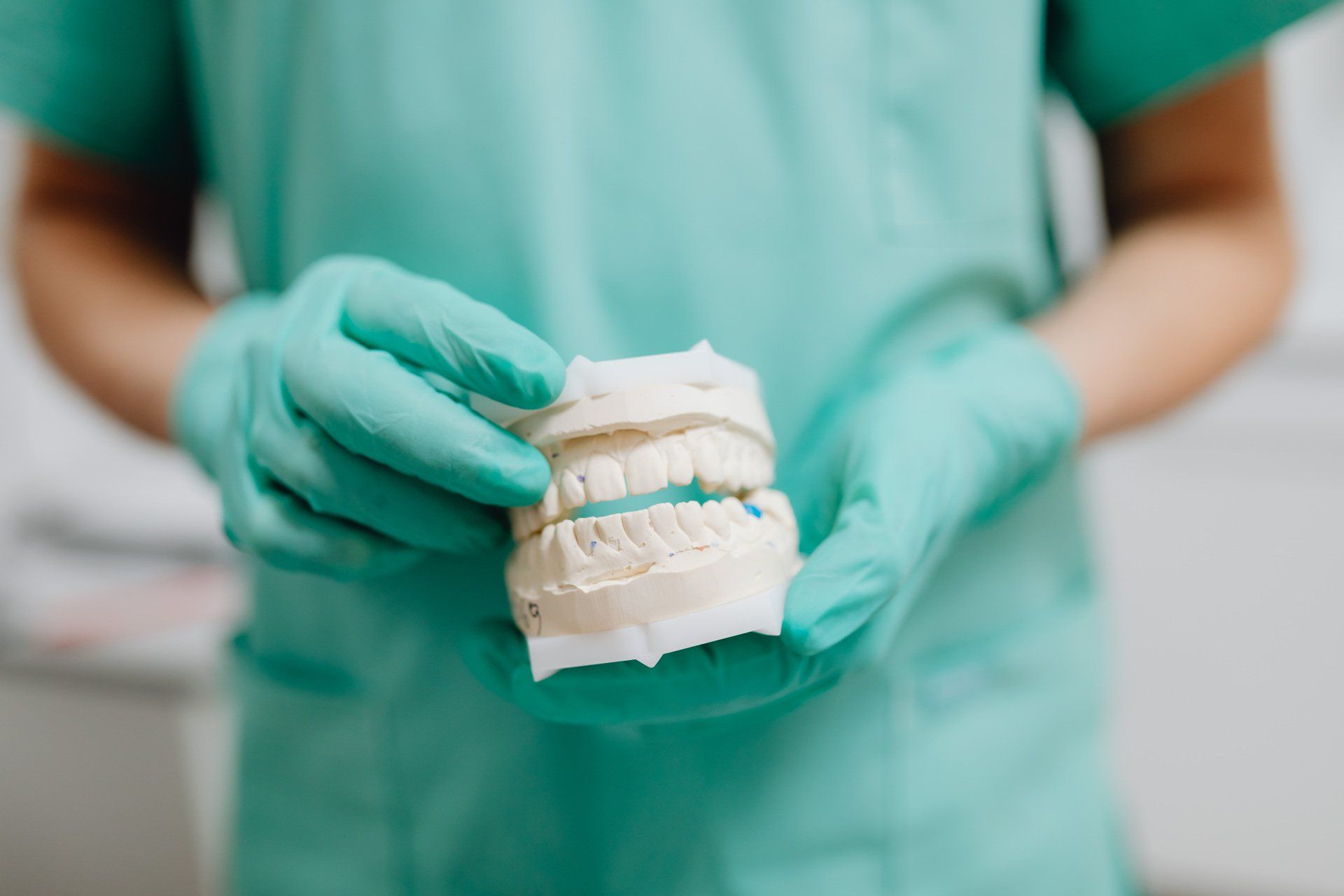Dentures in Annapolis MD
Dentures have changed a lot since they were made of wood about 500 years ago, but the basics are the same. When an entire section of teeth is in need of replacement—due to trauma, tooth decay or gum disease—a partial or full line of teeth is created and fitted into the mouth; today, instead of wood, we use medical grade composite resin for the teeth and then fit them into a custom-molded plastic base, created to accommodate the unique contours of your mouth.
While the most efficient method for replacing teeth is to use dental implants, many people find the cost of multiple implants to be too much for their budget. Dentures, while not as long-term a solution as implants, are an efficient and economical alternative.
The first step in getting dentures is to determine which type you need—partial or full. That determination is by finding out (sorry if this sounds too obvious) just how many teeth need to be replaced. For instance, if a row of three or four teeth is missing or needs to be taken out, a partial denture should be able to fill that gap efficiently. On the other hand, if all but one or two teeth have been damaged beyond repair, the smartest move may be to remove those remaining teeth to make room for a full denture. Those are just two scenarios; you’ll be given plenty of detail on your various options if the time comes for you to consider dentures.

Why resin and not porcelain
Elsewhere on this site, you’ll read about replacement teeth being made of porcelain, also known as ceramic. Porcelain in used for situations in which the replacement tooth isn’t intended to be removed, such as a dental crown, dental veneer or bridge. Since dentures are removed on a regular basis for cleaning, the risk of dropping them and damaging the porcelain/ceramic makes composite resin the more durable choice for dentures.
Once the section of teeth in need of replacing has been decided upon, the area needs to be prepped (e.g., removing damaged teeth, resolving gum disease, dealing with any jaw issues that could prevent seating your denture comfortably). Depending on how much healing time you require after the prep process, you may have to wait as much as several weeks before moving on.
When you’re ready to continue the process, detailed measurements of the mouth will be taken as well as molds of your teeth; you’ll also have a conversation about the shading of your artificial teeth. Those measurements, impressions and other notes are sent to a state-of-the-art dental lab where that data will be used to custom-engineer your dentures and make sure they’ll work well with your remaining teeth.
When the lab finishes its first round of work, your new teeth will be delivered in a wax base to check the fit. If the wax version sits in place well, the lab will be instructed to go ahead and complete your permanent plastic base. If the wax base doesn’t sit well, the lab will be instructed to make precise adjustments.
When your new teeth arrive in their plastic base, your denture will be put in place and carefully checked for proper fit; adjusting your denture at this point may involve shaving off a bit of the base plastic.
As with any other procedure, Aria Dental won’t call your denture procedure complete until you’re 100-percent satisfied with your results. If you need to talk about the possibility of dentures in Annapolis, please give us a call at Aria Dental.

Contact Us Today!
We love to hear from you, we are now open on weekends!
(By appointment only)
We will get back to you
as soon as possible
Office Hours
- Mon - Thu
- -
- Friday
- -
- Sat - Sun
- Closed
Request An Appointment
Contact Form
We will get back to you as soon as possible.
Please try again later.

Contact Us Today!
We love to hear from you, we are now open on weekends!
(By appointment only)
We will get back to you
as soon as possible
Office Hours
- Mon - Thu
- -
- Friday
- -
- Sat - Sun
- Closed
Request An Appointment
Dentures
We will get back to you as soon as possible.
Please try again later.
Accessibility Statement | Privacy Policy | Cookie Policy | Terms of Use | Site Map
Website designed and maintained by Energize Group
Aria Dental of Annapolis

